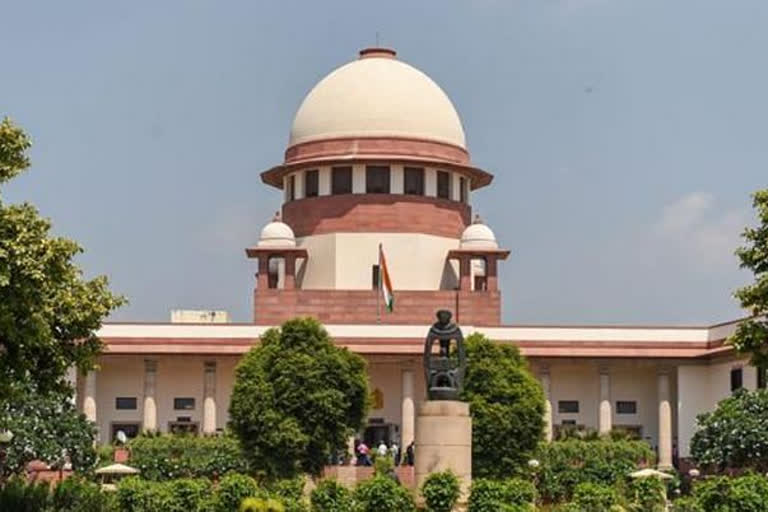Delhi: At least 11 slum dwellers have moved the Supreme Court seeking relief from the order of removal of 48,000 Jhuggis in the national capital. The move comes after Justice Arun Mishra had ordered the removal of jhuggis near the New Delhi area to address environment-related issues.
The plea filed by the slum dwellers, stated that if eviction of their homes happens, that too amidst the pandemic, it will be difficult for them to earn their livelihoods.
Mishra in his order had said, "No interference in the removal shall be made, no court should stay it and in case any stay order is given, it shall not be effective."
The order has attracted a lot of criticism for rendering people homeless without any arrangements of their rehabilitation or even listening to their side. The matter has also taking a political turn with parties blaming each other for it.
One of the advocates, who did not wish to be named, cited Olga Tellis judgement of 1985, pronounced by a 5-judge constitution bench led by Justice YV Chandrachud. As per the judgement, removing dwellers deprives them of their Right to Life and they should be first heard before disturbing their life.
The advocate said that as per the order, they have to be rehabilitated before they are removed. This judgment had come in response to a plea challenging the eviction of road pavement dwellers by the MCD, Mumbai.
"It's not like they are living there out of choice, they are living because of the circumstances, they eat there, they go to work from there and it is the government's duty to analyse their circumstances," said the advocate.
"Government of NCT of Delhi had also formulated the Delhi Slum and JJ Rehabilitation and Relocation Policy,2015, which provides for the rehabilitation of JJ Bastis before their demolition. As under Article 239 AA of the constitution, the government of India is the land-owning agency in Delhi. The policy has also been approved by the Government of India through the Hon'ble Lt. Governor of Delhi but deliberately it was not informed to the apex court, even though the policy comprehensively provides that no JJ Basti will be demolished without providing alternate housing to the inhabitants," said Advocate Pushkar Sharma who also practices in the apex court.
READ: Public perception that judges lead luxurious lives false: Justice NV Ramana
The Delhi High court had observed that it was essential to conduct a survey, consult the dwellers and give adequate time to them to move to the relocation site. The observation had come in response to Congress member Ajay Maken's plea, who has now moved to the Supreme Court challenging the decision based on the HC order.
Advocate Pushkar Sharma also cited cases of PG Gupta V State of Gujrat (1995, Supp.(2)SCC 182), Naresh Shridhar Mirajkar And Ors vs the State of Maharashtra And Anr,(1973)4 SCC 225), Sudama Singh and Others vs Government of Delhi and Anr, Allahabad Municipal Corporation vs Nawab Khan Gulab Khan and Ors which all were all pronounced in the same light i.e dwellers cannot be removed without providing them with other option of life.
Referring to the issue of removal during the pandemic, Sharma said that as per the United Nations COVID-19 guidelines, states must not evict anyone for any reason until the end of the pandemic and for a reasonable time thereafter.
"While the world is working on eliminating poverty alongside providing food, clothes and shelter, Indians are still haunted of getting their houses (slums) being demolished after a judgment pronounced by the Apex Court of the land," remarked Sharma.
"This is one of the Humanitarian issues relating to people of extreme poverty. We have been exposed to the actual face of the vulnerability of the poor during the pandemic while they were migrating from one place to another. Many died on the same railway track. Removing 48,000 jhuggis on 70 km route length of railway track without providing them with their rehabilitation in the nearby area is no justice. We can't close our eyes to the fact that they are our citizens and the state is obliged to treat them with dignity," commented Advocate MR Shamshad on the whole issue.
READ: Delhi Assembly panel summons Facebook India V-P over hate content



